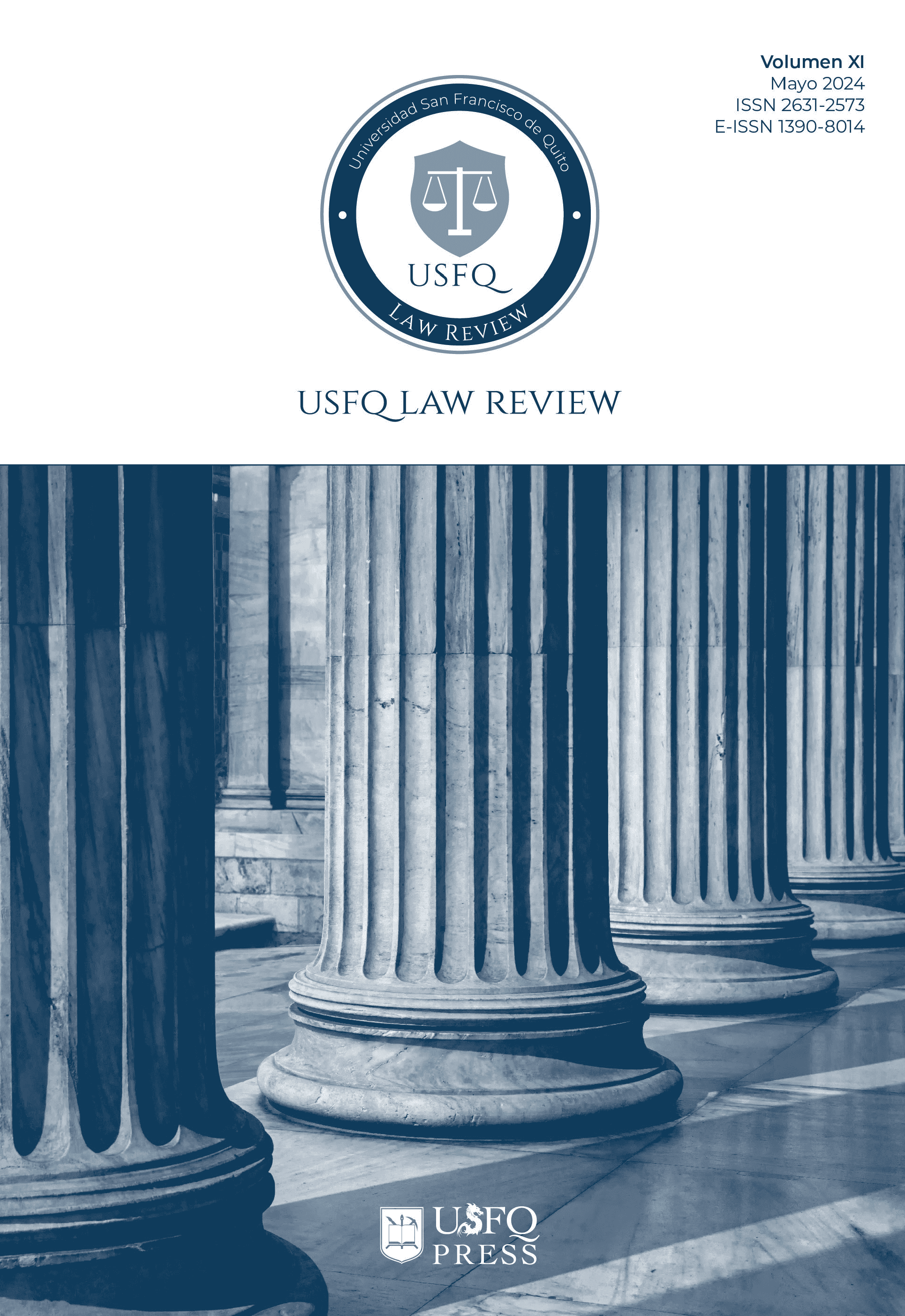¿El administrador y representante legal de una compañía es mandatario o trabajador? Análisis sobre la naturaleza jurídica de la figura
DOI:
https://doi.org/10.18272/ulr.v11i1.3229Palabras clave:
Administrador, representante legal, mandatario, civil, trabajador, laboralResumen
Las compañías ejercen derechos y contraen obligaciones por medio de un representante legal. Este agente es una persona natural que administra y representa a la compañía a nivel interno y externo. La legislación nacional, la doctrina y la jurisprudencia local señalan que el administrador y representante legal es un mandatario de la compañía. Primero, tiene a su cargo la dirección y administración de la compañía, lo que desvirtúa el elemento de subordinación o dependencia, que es la piedra angular de la relación de trabajo. Segundo, en la mayoría de las compañías, el cargo es precario y de libre disposición, pues no requiere causal o justificación alguna para su remoción. Por último, el cargo de representante legal es limitado a un período máximo de cinco años y recibe honorarios como contraprestación de sus servicios. Por otro lado, el trabajador recibe un sueldo o salario que no puede ser inferior al mínimo legal y su tiempo de trabajo es indefinido. No obstante, existen ciertos casos en los que no queda claro si es que la naturaleza jurídica de esta figura es meramente civil o, por otro lado, se encuentra sujeta al régimen laboral.
Descargas
Citas
Alcázar, Sara Camino de Solórzano y Ángel de Val. “Régimen jurídico de la relación laboral especial del personal de alta dirección”. Revista de relaciones laborales 14. (2010): 7-22. https://dialnet.unirioja.es/servlet/revista?codigo=1070.
Cabanellas, Guillermo. Diccionario Enciclopédico de Derecho Usual Tomo IV. Buenos Aires: Editorial Heliasta, 2008.
Cevallos, Víctor. Nuevo Compendio de Derecho Societario Tomo II. Quito: Corporación de Estudios y Publicaciones, 2016.
Constitución de la República del Ecuador, R.O. 449, 20 de octubre de 2008, reformada por última vez R.O. Suplemento 377 del 25 de enero de 2021.
Código Civil [CC], R.O. Suplemento 46 de 24 de junio de 2005, reformado por última vez R.O. 526 del 19 de junio de 2015.
Código del Trabajo [CT], R.O. Suplemento 167, de 16 de diciembre de 2005.
Corte Suprema de Justicia, Sala de Casación, página 3295.
Corte Suprema de Justicia, Sala de Casación, de 25 de abril de 2003.
Corte Suprema de Justicia. Sala Laboral. Año XCVII. Serie XVI. No. 8.
Ley de Compañías, R.O. 312, 11 de mayo de 1999, reformado por última vez R.O. Suplemento 269 de 15 de marzo de 2023.
Ortegas Lozano, Pompeyo. “Criterios Delimitadores Del Personal Directivo Como Relación Laboral De Carácter Especial: La Recíproca Confianza En El Vínculo”. Revista de Estudios Jurídicos Laborales y de Seguridad Social 4. (noviembre - abril 2022): 231-264. https://revistas.uma.es/index.php/REJLSS/article/view/12885.
Parraguez, Luis. Régimen jurídico del contrato. Quito: Cevallos Editora Jurídica, 2021.
Reyes, Francisco. Derecho Societario Tomo I. Bogotá: Temis, 2020
Robalino, Isabel. Manual de derecho del Trabajo. Quito: Fundación Antonio Quevedo, 1994.
Trujillo, Julio César. Derecho del Trabajo. Quito: Centro de Publicaciones PUCE, 2008.
Vásquez, Jorge. Derecho Laboral Ecuatoriano. Quito: Cevallos Editora Jurídica, 2004.

Descargas
Publicado
Cómo citar
Número
Sección
Licencia
Derechos de autor 2024 Nicolás Vela Naranjo, Gabriela Anahí Jácome Aguirre

Esta obra está bajo una licencia internacional Creative Commons Atribución-NoComercial-CompartirIgual 4.0.
En relación a los derechos de autor, los autores que publican en USFQ Law Review conocen y aceptan sus políticas internas, en especial pero no exclusivamente:
1. Política de Acceso Abierto.
2. Política de Autoría.
3. Política de Derechos de Autor.
4. Política de Pre-Publicación.
5. Política de Pos-Publicación.
6. Política de Protección de Propiedad Intelectual.
7. Política de Preservación Digital.



